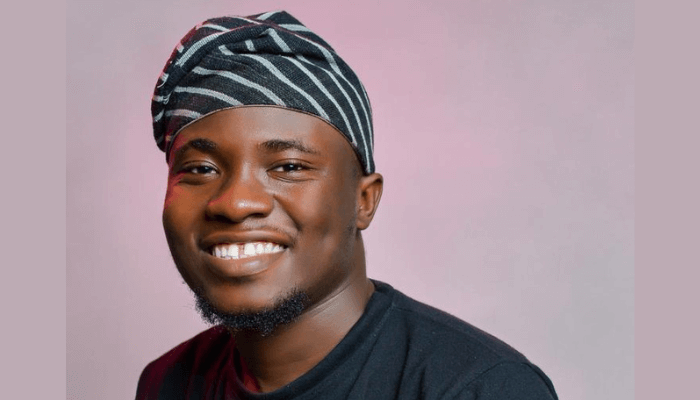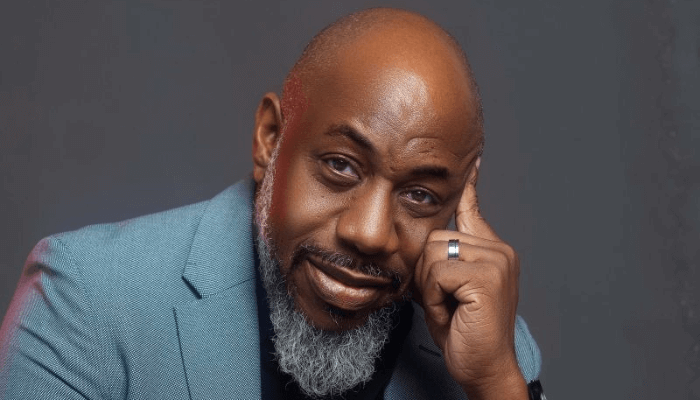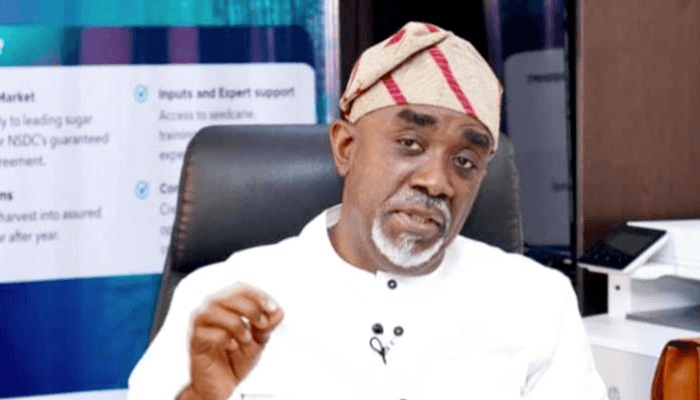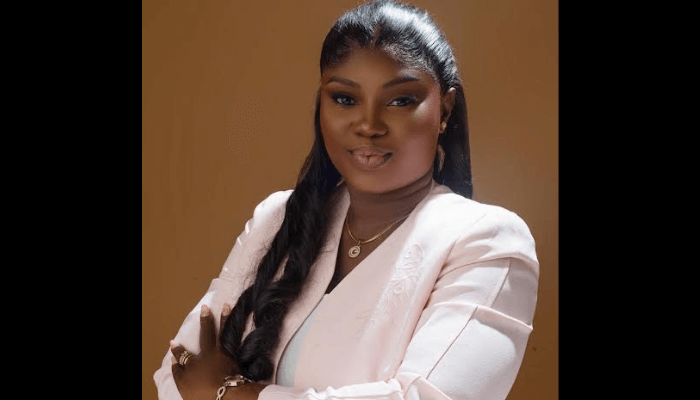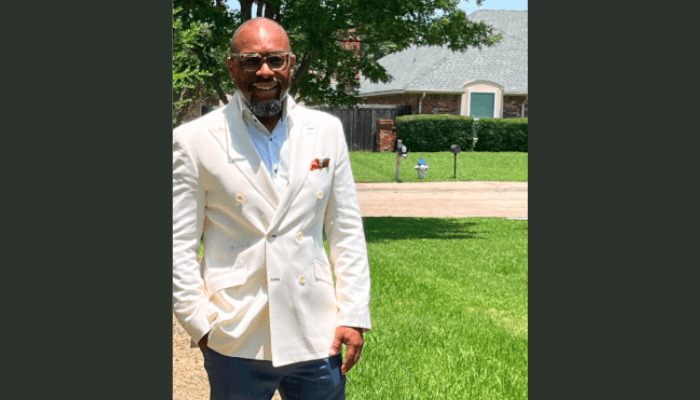Oluwabukunmi Victor Babatunde is a technology innovator and multidisciplinary leader dedicated to solving Nigeria’s challenges through design, innovation, and impact-driven solutions. He is the founder and CEO of Sane, Africa’s first AI-powered mental health operating system, and Founder of AI for Africa, a non-profit closing the AI skills gap across the continent. A Fellow of the Design Leadership Forum and Global Mentor with ADPList, Techstars, and Startupbootcamp, Victor (O) supports startups and talents globally. Through HealthGap Africa and the VOB Foundation, he drives youth empowerment, health innovation, and sustainable community development. In this interview with KENNETH ATHEKAME, he discussed Nigeria’s pressing macroeconomic challenges, including FX volatility, unemployment, and a rapidly growing youth population. Excerpts:
You’ve worked at the intersection of technology and social impact for several years. From your vantage point, how can Nigeria better harness technology to stimulate inclusive economic growth?
To truly stimulate inclusive growth, Nigeria must stop treating the tech space as an elite space and start grounding it in the everyday realities of people. I’ve seen firsthand how young people in underrepresented communities light up when they realise they can build something like a chatbot, a digital store with just a smartphone and internet access.
We need to take this spirit beyond Lagos, Abuja, Ibadan, Akure, Port Harcourt, and the usual suspects. Imagine equipping women in Kano with digital platforms to grow their microenterprises, or training young people in Bayelsa to build local climate data tools that support agriculture. Technological growth must be inclusive — rural and urban, north and south. I’ve seen the power of this in programs I’ve led, and in initiatives like Tech4Dev.
Given Nigeria’s current macroeconomic challenges, FX volatility, unemployment, and a growing youth population where do you see technology offering the most immediate relief or disruption?
The most immediate relief, honestly, is in digital work and education. We can’t fix FX volatility overnight, but we can help a young graduate in Osogbo earn in dollars through remote work. I’ve met young people who were unemployed for years but turned things around through short engineering courses or no-code training.
The second is health. We built Sane because too many people are suffering silently, especially professionals. The cost of poor mental health to productivity is invisible but massive. If we can support mental wellness through digital platforms, we not only reduce suffering, but also improve the quality of Nigeria’s workforce. That, to me, is relief that multiplies. We must fix healthcare both mental and physical if we want to harness our economic potential.
How do you evaluate Nigeria’s tech ecosystem today? Are we innovating or merely adopting?
I think we’re in a transition phase. In the beginning, we did a lot of copying and that’s fine. You need to learn the rules before you break them. My design background supports this: you break principles only when you’ve mastered them.
But now, I’m seeing true innovation. Local platforms solving payment issues in areas with poor connectivity, or my friends at Spitch designing AI tools in native languages like Yoruba, Igbo, and Hausa. I’ve worked with some of these builders people who don’t just want to clone but contextualise. I’ve tried my hands on a few projects too. But we still face infrastructure gaps, funding gaps, and a lack of long-term support. In this regard, Africa needs patient capital that backs bold, innovative, and audacious founders.
So yes, we’re innovating. But imagine what we could do if we weren’t constantly building with one hand tied behind our back.
Sane is pioneering AI-powered mental health solutions in the workplace. What does this innovation say about the intersection of health, productivity, and economic performance in Nigeria?
The reality is that burnout, anxiety, and depression are quietly killing productivity across sectors. People come to work, but they’re not really present. They’re overwhelmed, unsupported, and ashamed to speak up. Sane was born out of both personal and observed experiences. I lost all my life savings during the pandemic and fell into unconscious depression. It affected my work and almost made me lose everything. I’ve also seen friends and colleagues break down silently, quit without a word. That’s why we’re using tech not just to collect data, but to create early-warning systems, self-help tools, and access to care all integrated into the workflow.
In one pilot, we saw an uptick in productivity and retention simply by enabling people to feel supported. That’s the business case. But beyond the numbers, we’re saying: you can’t build a healthy economy on mentally broken people. Care is not just kindness, it’s strategy.
Can AI truly be localised to solve Africa’s problems or are we still too dependent on imported models and platforms?
It must be localised. The moment you try to apply Western-trained AI models here without context, things start to break especially in healthcare, education, and other critical sectors. Whether it’s language, culture, symptoms, or tone, nuance matters. That’s why, with AI for Africa, we’re training young Africans not just to use AI, but to build it with their communities in mind. We’ve trained thousands so far and will continue to chart that course. Localisation isn’t just about pride, it’s about precision. If we don’t build our own systems, we’ll always be at the mercy of systems that don’t fully understand us.
As someone building “solutions that help people live better lives,” how do you measure success beyond revenue?
For me, success is measured in ripple effects. When a young person I mentored gets a job, builds something meaningful, or starts mentoring others, that’s impact. When someone tells me a tool we built helped them avoid burnout or feel seen, that’s success.
I once mentored a lady who thought tech wasn’t “for someone like her.” Today, she works for a global startup and mentors younger people. That story is worth more than numbers.
Of course, we track metrics. But stories are what keep me grounded. Revenue is fuel; impact is the destination.
Through AI for Africa, you’ve trained thousands. What specific gaps in education or policy need to be addressed for Nigerian youth to compete globally in the AI revolution?
First, we need to move beyond theory. Most Nigerian students don’t touch real-world projects until they graduate and by then, it’s often too late. We need hands-on labs, maker spaces, and mentorship built into education. I don’t think Africa has a talent gap; I think it has an incubation problem.
Second, policy needs to support access to the internet, hardware, and power. What’s the point of AI courses if students can’t run code or practice?
Finally, we need a mindset shift. AI isn’t only for computer scientists, it’s for agriculture, health, fashion, governance. We must help our youth see that no matter their path, there’s a place for them in the AI revolution.
Do you think Nigeria’s formal education system is keeping pace with the future of work? If not, what alternatives or reforms would you suggest?
Frankly, it’s not. Our system still relies heavily on rote learning, outdated curricula, and narrow definitions of intelligence. Meanwhile, the world is shifting to project-based, collaborative, interdisciplinary learning.
I believe in hybrid models partnerships between schools and tech hubs, co-created curricula with industry, and heavy investment in teacher training. I’d love to see a national digital apprenticeship program, where youth learn by doing, not just by reading. The 3MTT programme, led by Francis Sanni from the office of the Honourable Minister of Communication, is a good start. But we need more of that co-created with educational institutions, where youth spend most of their formative years.
How do you see Nigerian youth shaping the country’s digital economy over the next decade?
They are the digital economy. Every time I meet a 20-year-old building an app, editing films on their phone, or creating AI art, I’m reminded that our youth aren’t waiting, they’re building. But to sustain this momentum, we need safety nets access to credit, mental health support, and startup protection laws. If we can empower and protect them, Nigerian youth won’t just participate in the digital economy, they’ll define it.
What has your experience working with organisations like Tech4Dev and the United Nations taught you about the role of partnerships in scaling impact?
One thing I’ve learned: impact is a team sport. With Tech4Dev, we reached communities I couldn’t have reached alone. That shaped my perspective on collaboration there’s limited benefit in isolated innovation. There’s power in the collective.
With the UN-backed Hult Prize Nigeria, we amplified voices that needed to be heard and built the groundwork for the thriving community that exists today. My friend Damilola Mogaji’s leadership there showed me the importance of building strong foundations for anything sustainable. Partnerships give you scale, but more importantly, they give you perspective. They help you think bigger, design better, and move faster. For anyone in social impact don’t isolate. Collaborate.
In your opinion, how should the Nigerian government and private innovators collaborate to accelerate tech adoption and digital inclusion?
The government must create enabling environments better infrastructure, flexible regulation, and clear digital policies. But innovators must also be honest, ethical, and inclusive in how they build.
I’d love to see more accessible public-private innovation funds, policy sandboxes, and rural tech adoption programs. If we’re serious about inclusion, we must leave the comfort of tech clusters and build bridges into the rest of the country.
If given the opportunity to advise the National Economic Council, what innovation-driven policies would you recommend for long-term economic sustainability?
First, invest in talent. Make tech education and mental wellness national priorities. Second, support local innovation through grants, not just loans. Third, create clear pathways for digital startups to scale without bureaucracy strangling them. Fourth, invest in education and research. That can never be swept under the carpet it’s critical. The best innovations a built under research, we need to take this seriously.
And finally, I’d advocate for mental health inclusion in economic policy. A mentally resilient workforce is a more productive one. Let’s stop treating well-being as a “soft” issue. It’s a strategic one.
You’ve built platforms, communities, and brands that have reached millions. What’s your long-term vision for your work and how does it tie into the Nigerian or African renaissance?
My vision is to help build an Africa where people are not just surviving but thriving mentally, economically, and creatively. I want to help close the AI knowledge gap by at least 10 percent by 2030, grow platforms that support the overlooked, and nurture a generation that feels empowered to build boldly.
Africa’s renaissance won’t come from a single app or project it’ll come from a movement of connected, informed, and inspired people. That’s what I’m building toward.
What keeps you grounded as a multidisciplinary innovator working across such fast-changing fields?
Clarity of purpose. Whether I’m designing, writing, marketing, serving in the photography team in church on Sunday, mentoring, or building it’s all under the same umbrella: helping people live their best lives. That simplifies everything for me.
I’m also surrounded by people who check me family, mentors, teammates. And my faith. It reminds me that this work isn’t just about me. It’s about something bigger purpose.
Finally, what message would you give to young Nigerians hoping to build meaningful careers at the crossroads of tech, purpose, and nation-building?
Don’t wait for permission. Start where you are. You don’t need perfect tools or funding. Find a problem you care about and take action, however small. And remember: this country is hard, yes but you are not helpless. You are the help Nigeria is waiting for. Build with people, stay true to your values, and never stop learning.




